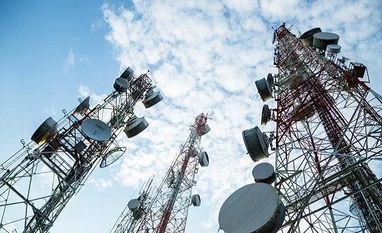)
What is the draft telecommunication Bill?
Key features of draft Telecom Bill, 2022
• The draft Telecom Bill, 2022 provides an enabling framework for the Central Government to prescribe measures to ensure the protection of telecom users. Therefore, provisions related to unknown caller identity have been included in the Bill. Users also need protection from calls that they want to avoid. The Bill enables a legal framework for preventing harassment of users from unsolicited calls and messages.
• The Bill recognises the globally established principle of exclusive privilege of the Central Government in relation to telecommunication services, telecommunication network, telecommunication infrastructure and spectrum.
• The draft Telecom Bill proposes to give exemption to press messages that are intended to be published in India of correspondents accredited to the Central or state governments from being intercepted.
• The Bill has laid down statutory guidelines on assigning spectrum. It says that spectrum should primarily be given through auction. For specific functions related to government and public interest, like defence, transportation, and research, the bill proposes assignment through the administrative process.
• In another significant clause, the draft bill proposes to waive off fees and penalties of telecom and internet service providers. However, in case of the breach of terms and conditions of a license, registration, authorisation or assignment granted, the Centre should be able to impose penalties.
• According to the draft Telecom Bill, the exemption for press messages though won't be given in case of any public emergency or in the interest of public safety, sovereignty, integrity or security of India, friendly relations with foreign states, public order, or to prevent incitement to an offence.
• The Bill also proposes a refund of fees if an internet or telecom service provider offers to surrender the license. The last date for seeking comments on the draft legislation is October 20.
• The draft bill says that the Centre may "waive off in part or full any fee, including entry fees, license fees, registration fees or any other fees or charges, interest, additional charges or penalty" for any licence holder or registered entity under the telecom rules.
• The Bill provides for the right of appeal before the appellate authority. It also creates an enabling provision for the Central Government to set up an alternate dispute resolution mechanism such as arbitration, mediation or other processes of dispute resolution.
The Bill provides for a uniform and non-discriminatory regulatory framework governing:
(a) establishment of telecommunication infrastructure on public property; and
(b) enabling provisions in respect of the private property.
The draft Telecom Bill seeks to simplify the framework for mergers, demergers and acquisitions, or other forms of restructuring, by only requiring intimation to the licensing authority.
Under the Bill, the Universal Service Obligation Fund (USOF) is sought to be expanded into the 'Telecommunication Development Fund' (TDF), by adding further objectives for underserved urban areas, R&D, skill development, etc.
Latest Updates on Draft Telecommunications Bill
The original draft of the Bill contained a framework to waive the license fees for financially troubled companies. Had these provisions made it to the final bill, things would have been easier for VI
The Centre will take temporary possession of telecom network in case of any public emergency or in the interest of public safety, under the Telecommunications Bill, 2023
The bill, which was released last September, was opened up for wider public consultation. It is now in the final stages
Trai has fixed February 10 as the last date for the comments and February 24 for the counter-comments
Inability to pay vendors and invest in business could hurt its operations, especially its ability to retain high ARPU postpaid customers, the report said
Govt plans to include fund in upcoming telecom Bill despite telcos' opposition, officials said
Officials aware of the matter said that revised telecom bill will 'clearly' state the Centre's aim to regulate only communication apps 'that give the same service as telecom operators'
The IAMAI, in its letter to the Department of Communication (DoT), has expressed grave concern about the impact of these changes on India's startup ecosystem and the digital economy
An updated National Frequency Allocation Plan may open up new spectrums for 5G auctions and deployments in next 6-10 months, said officials
The draft telecom bill also recognised that the spectrum is a valuable resource and provided for the assignment of the spectrum for the public good
Vaishnaw says the service will be available for apps such as WhatsApp, Telegram